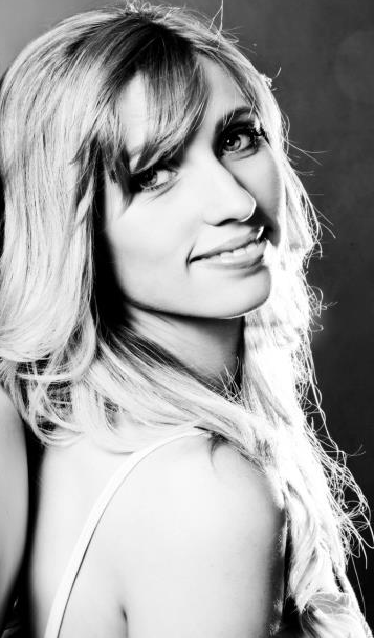 I Skyped with Australian Young Adult author Jacinta Maree, and I was the first American she has ever talked to face-to-face. I hope I represented the great country of the United States of American adequately. While we talked, I ate beef jerky, slurped on a 64 oz. Big Gulp full of a Monster energy drink, and cleaned my 7mm Remington hunting rifle. I had my bible prominently placed, but we’ll get to religion. Oh, yes, we will.
I Skyped with Australian Young Adult author Jacinta Maree, and I was the first American she has ever talked to face-to-face. I hope I represented the great country of the United States of American adequately. While we talked, I ate beef jerky, slurped on a 64 oz. Big Gulp full of a Monster energy drink, and cleaned my 7mm Remington hunting rifle. I had my bible prominently placed, but we’ll get to religion. Oh, yes, we will.
But first, more about Jacinta!
Self-confessed chocaholic Jacinta was born and raised in Melbourne, Australia, with her loving family of five. Even as a child, Jacinta had an itch to write. Writing was the one constant hobby she clung to, also trying her hand at piano, flute, tennis, horseback riding and drama. Jacinta works full-time in the family business and spends her afternoons either playing basketball, reading, writing, or hanging out with friends. She is always happy to try something new; getting her real estate license, practicing ninjitshu, Zumba and parkour to name a few. For her future, Jacinta sees herself writing. It is a large part of her identity and something she hopes to continue. Aside from her love of stories, she loves Japan and its unique and beautiful culture and history. From their delicious sushi dishes right down to their kimonos and wooden sandals. She is also a huge cat person and loves to snuggle up in front of the fire for a good movie or book. Her favorite genres are paranormal and fantasy but she also loves anything written by thriller writer Stephen King.
And here is where we get more on her debut novel, My Demonic Ghost. What’s the story, morning glory?
Rachael has traveled to Whitehaven to visit her father, a trek she cannot help but dread given his recent descent into madness. Upon her arrival she realizes his deterioration has not only been mental, it’s been physical as well. His death comes as no surprise, but what she discovers soon after, is shocking when his burden becomes hers. Lock is a banished spirit who must attach himself to a human host in order to hide from those who would drag him back to hell to be destroyed. When he meets Rachael he finds more than a host, he finds an ally. Together they must defeat each of the seven sins in order to guarantee Lock’s safe passage into the Third Realm, a loophole in creation that would allow him to escape hell and have peace at long last. Through their unlikely friendship, other banished spirits flock to them in hopes of a peace they hadn’t dreamt possible.
Six months in the making, this interview was epic! We talked about atheism and God–which of course are subjects I adore as much as Americans adore semi-automatic assault rifles–Wrestlemania, beer, and monster truck rallies. And Jesus.
So let’s get to it! Hit me baby one more time.
Aaron: So, Jacinta, how did you hook up with Heather Savage? I interviewed her and she is the essence of awesome. Tell us a little about how that worked.
Jacinta: Heather Savage has been a fantastic mentor and role model since the moment I met her. Obviously due to the large distance of earth and water separating us, I could only get into contact with Heather over email but even so she managed to inspire me to become a better writer. I had been searching for reliable editing help to improve on my manuscript when I stumbled across Staccato. From the kick-off, Heather had been honest, helpful, cheerful and energetic when dealing with me (and my thousand and one questions). We would speak everyday about philosophy, karate, parkour and publishing. Call it luck or fate, I am very grateful to have met her and the team at Staccato.
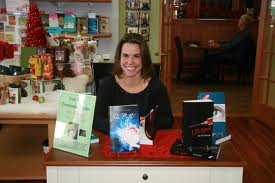
Aaron: You said when you were taken on by Heather, you wept. I was too shocked for tears when I got my first book deal. I usually save all my tears for Doctor Who, but yeah, anyway, why do you think you had such an emotional reaction?
Jacinta: I had been rejected and ignored by many Australian publishers before I reached Heather and so I had expected to get rejected again. I was careful to keep my hopes down. It’s hard not to take rejection personally and a way to protect myself I presumed rejection from everyone. I just kept telling myself, every no is just getting you closer to that yes. So when she dropped the bomb on me I wasn’t expecting it. It kind of hit me like a football to the nose; tears were swelling before I could comprehend what I was crying over. For a while I didn’t dare tell anyone outside my immediate family in case it was ‘too good to be true’.
Aaron: Like me, you had a hidden phase, where you wrote a bunch and didn’t show your work to anyone. Which project would you pick from your hidden phase that would make the best movie? Who would direct? What would the story be? Actors? Actresses? Soundtrack?
Jacinta: Oh no! The folder of shame. The only story that actually took form was one I had completed when I was in year seven. It was a strong 180 pages long and revolved around high school girls, witchery and the earthly elements. I had called it ‘Magic Goes Six Different Ways’ and it was about six unlikely friends who were born with supernatural powers embedded in their bodies. When they all formed together at their new high school, it was like a trigger had been tripped causing all the girls to slowly transform into super beings. It’s… ridiculous. No wonder I hid it.
Aaron: So you’ve had lots of projects, but what drove you to finish and polish up My Demonic Ghost? Why did that project make it?
Jacinta: The connection I had formed with My Demonic Ghost had saved it from the sinking ship. It just wouldn’t get out of my head no matter how long I spent away from it; it was like some consistent cough. My Demonic Ghost is unique and it has a powerful message behind it. I felt like if I didn’t tell this story then no one ever would.
Aaron: So for your character Lock, how did you get into the mind and soul of a fourteen-year-old boy? Did you watch lots of Star Wars and browse through lots of lingerie catalogs?
Jacinta: Ha ha ha, no I didn’t venture that far into the mind of a boy but I had studied theatre during my VCE so it was a bit easier for me to step into the shoes of other characters. I may not have dived into the interests of the common teenage boy but I did take every sentence Lock said and every reaction very seriously. He’s an incredibly strong character, one that I had based off Casper The Friendly Ghost movie originally before he started to morph into his own self. His personality came out naturally, like I had been friends with him for my entire life without knowing it.
Aaron: Every interview, I ask people what they don’t want to talk about, and you were trying to shy away from the religious aspect of your book. But you were a good sport and agreed we could talk a little about it. Okay, just a little. I love this stuff! And yeah, the angel in my book starts off as an atheist, and I myself am a Catholic-Hindu-Atheist. No. Really. Anyway, I’m dancing around the question. So we’ll just go there. You mentioned that the God in your book is corrupt. How so? And could you ever write a novel where you show some sort of divine force in a more positive light?
Jacinta: It is possible, I guess, but it’s not something that interests me. It’s been done to death. I want to write something unique and intriguing. My Demonic Ghost was an experiment for me; can I make angelic beings bad and have an audience cheer for the demons? Are people even interested in a story told from the monster’s side? It would’ve been easy if I had written the Banished spirits as noble, misunderstood creatures but I didn’t want that. I wanted them to be rude, temperamental, vicious and scary. I wanted them to have all these horrible demon qualities as well as good human traits and see if I could make the readers fall in love. The god is corrupted by greed and power, which is funny because that is a very human fault for a divine being to be guilty of.
 Aaron: Like me, you went to a private Catholic school, all-girl. Well, I went to an all-boy, but you get my point. Going to all-boy Catholic school left me with an unhealthy interest in existential atheism, Star Wars, and lingerie catalogs, but I digress. How do you think your school affected your writing in My Demonic Ghost, or did it?
Aaron: Like me, you went to a private Catholic school, all-girl. Well, I went to an all-boy, but you get my point. Going to all-boy Catholic school left me with an unhealthy interest in existential atheism, Star Wars, and lingerie catalogs, but I digress. How do you think your school affected your writing in My Demonic Ghost, or did it?
Jacinta: If I hadn’t gone to a Catholic School, ‘My Demonic Ghost’ probably wouldn’t have existed. I am an atheist, but even so, the possibility of spirits and the afterlife have fascinated me. And being an atheist may have helped with any spiritual conflict a person may encounter when trying to depict a God as bad. I wasn’t targeting any religion of course, hence why I created an afterlife system from scratch. I just borrowed ideas such as Angels, Demons and of course the Seven Sins.
Aaron: Last question, and this where you can let your creativity explode like a nuclear bomb dropped into the middle of a tsunami. You said you were a cradle writer and that you have no idea how you came to start writing. You didn’t have any relatives or friends who wrote, but you started it up like a bad habit. Make up a story, paranormal or not, that explains why you started writing at a very young age.
Jacinta:
True Version: I think my obsession with the written word had started when I was given one of those children’s books for my birthday, where the name of the protagonist is changed to the child’s name. I had been put into a book and the adventure of the ‘Jacinta’ inside that world was so incredible I wanted to explore more and more. So I started to write and I found it came naturally to me. My spelling, on the other hand, did not, so I was a writer who couldn’t spell. What are the odds? I had written my first story when I was in grade two and ever since I’ve kept going.
Fun Version:
I was born with a terribly embarrassing problem. Every time I tried to speak, my words would form knots in my mouth. I had become a one-man freak show, stuttering and blurting out the wrong words and stumbling through my sentences like a clumsy waiter. I would practice in my head every night, breaking the sentence down so I was able to pronounce it properly the next time I spoke. My delays in natural speech gave the other children the impression I was slow, so in the end I just stopped speaking all together. By the time I had reached the age of eight I had forgotten how to speak altogether.
When I couldn’t speak to my family, I instead wrote. I wrote everything I was thinking, everything that I was seeing and doing and soon my words formed stories. Through the written path, I wasn’t an outcast but a hero charging into battle on top of a dragon. I was a mystical princess charming the birds to do tasks for me. I was powerful and confident. Through literature I was able to gather my confidence back up to take on the task of speaking. Day by day, I got stronger and I would practice in secret, reading my stories aloud in a confident voice. For the first time in a long time, I was able to greet my mother at the door with a gentle ‘Hello’.
Aaron: Thanks so much to Jacinta Maree!
Jacinta’s blog
Her Facebook author page
Jacinta’s Deviant Art page
On Goodreads
Smashwords author page
On Amazon
But hey, both Jacinta and I are going to Romantic Times Book Lovers Convention in Kansas City, baby, May 2013! She’s road-tripping down from Minneapolis, like a good American, fueling the journey on Cherry-Coke Slurpees and Cheetohs. God bless, America! I can’t wait to see Jacinta and all my friends again!

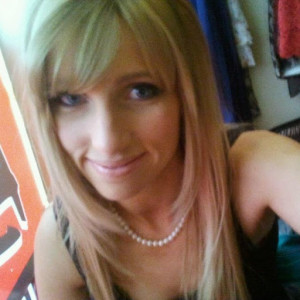

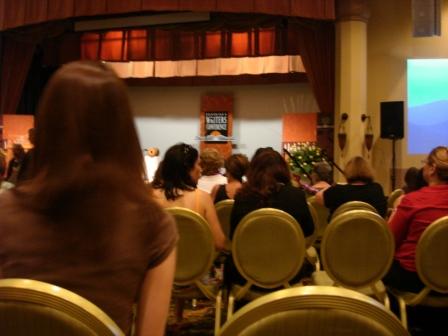
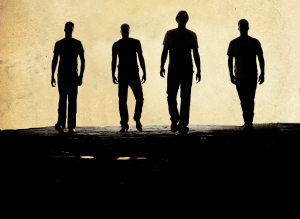 both scared. Doesn’t mean we stop. No, once you have two people sharing their fear, the fear is lessened. I think that’s where the idea came from of when two people meet, there is God in that meeting.
both scared. Doesn’t mean we stop. No, once you have two people sharing their fear, the fear is lessened. I think that’s where the idea came from of when two people meet, there is God in that meeting.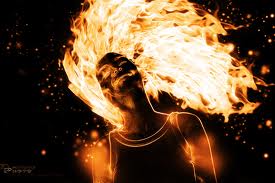 Don’t tell me what to do. Not even if I’m on fire. The minute you say, “Oh, you should put out the fire that’s burning on your head!” I will let that fire burn me to cinders.
Don’t tell me what to do. Not even if I’m on fire. The minute you say, “Oh, you should put out the fire that’s burning on your head!” I will let that fire burn me to cinders.